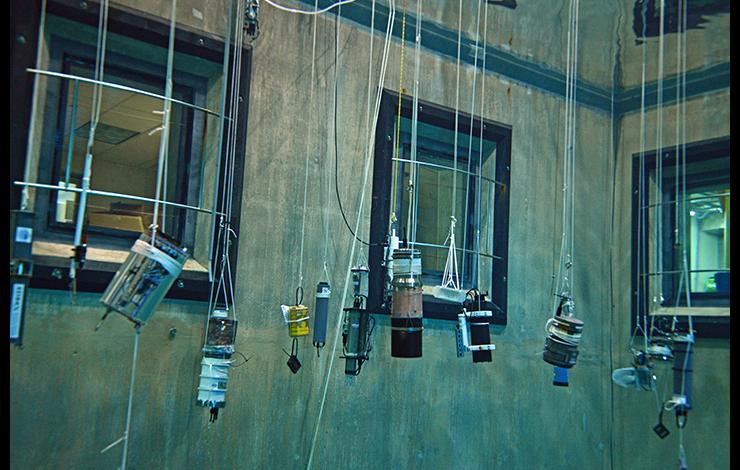Okazaki, R.R., A.J. Sutton, S.R. Alin, R.A. Feely, A.G. Dickson, C.L. Sabine, P.M.E. Bunje, and J.I. Virmani (2017): Evaluation of marine pH sensors under controlled and natural conditions for the Wendy Schmidt Ocean Health XPRIZE. Limnol. Oceanogr. Methods, doi:10.1002/lom3.10189.
Since the beginning of the Industrial Revolution, human activity has increased levels of carbon dioxide (CO2) released into the Earth’s atmosphere, with nearly 30% of that CO2 being absorbed by the oceans. Decades of observations have shown that the ocean’s absorption of CO2 results in a decline in seawater pH levels, thus changing the overall chemical composition of the ocean. This process, known as ocean acidification (OA), is occurring faster now than at any other time in the geologic record.
There is an ever-increasing body of documentation of OA’s effects on marine ecosystems and the subsequent cost to coastal communities and fisheries. Nevertheless, without low-cost, high-quality autonomous pH sensors, our ability to track OA effectively across various ocean environments and ecosystems is limited. The 2013 announcement of the Wendy Schmidt Ocean Health XPRIZE sought to address this scientific need by awarding a $2 million prize to developers who could improve performance and reduce the cost of pH sensors. Evaluations of 17 sensors (12 of which were prototypes from non-commercial entities) were conducted during a series of tests performed between September 2014 and May 2015. This report details the validation efforts behind the competition, which prioritized the performance metrics of accuracy, repeatability, and stability over specific applications.



